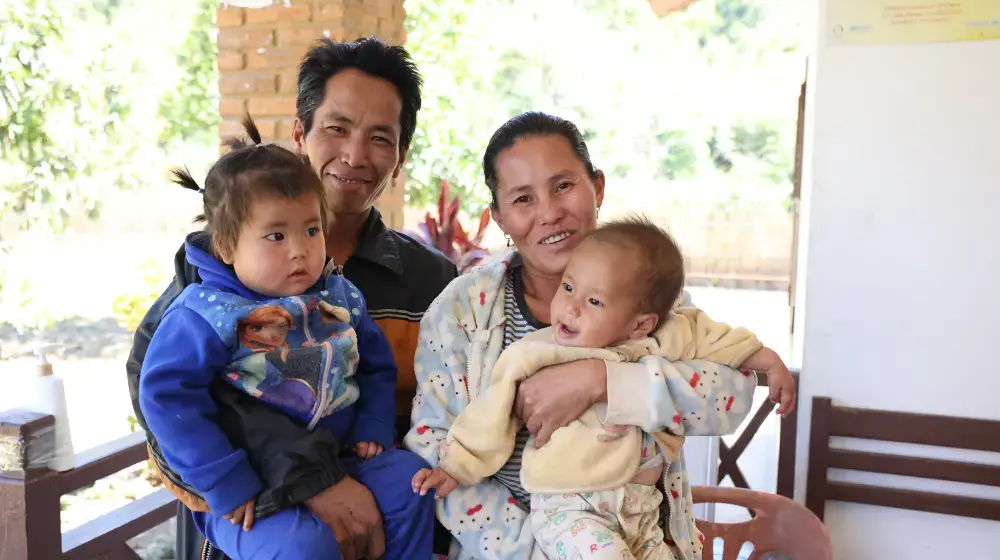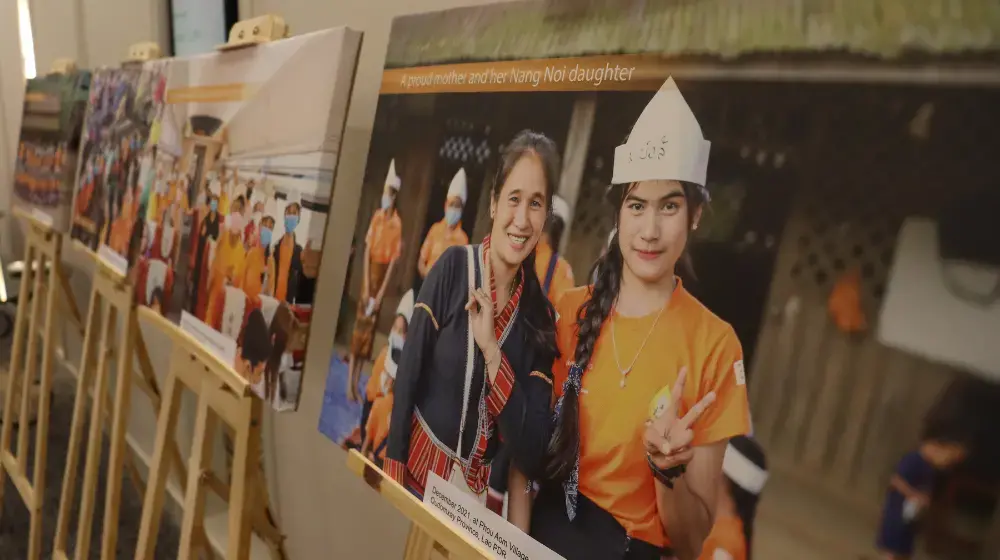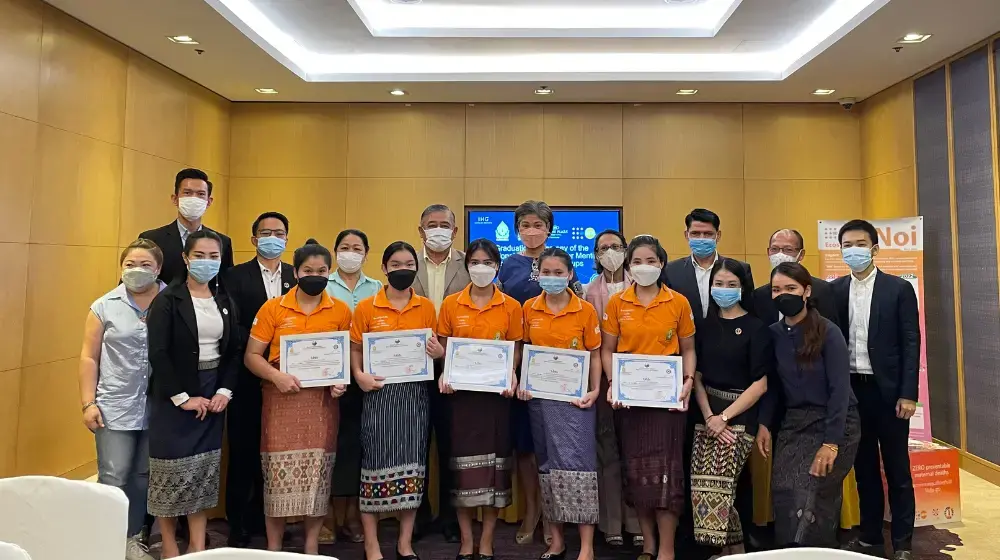At a rural and remote village, 30 kilometres from the district town in Oudomxay province in northwest Lao PDR – predominantly populated with Khmu and Leu ethnic groups,, a group of adolescent girls were playing outside. But, this was not any game. They were playing to learn, real life lessons, about body changes and saving money, matters that will shape their lives.
“I went to a training in Namor district and brought back these lessons to share with my peers, adolescent girls and boys in my village to learn about changes in the body, menstrual hygiene management and how to be more confident when making decisions in life,” said 25-year-old Duangchai, a Nang Noi mentor at Nam Kor village, as she looked on proudly at the girls, engrossed in their role-play, under the shade of a tree, sheltering them from the hot sun.
Duangchai was empowered to take on this mentoring role by the Nang Noi Girls Groups (NNGG) programme, initiated in 2017 by UNFPA and the Ministry of Education and Sports’ (MoES) Non-Formal Education Department in southern Savannakhet province. The NNGGs aimed to build the capacity in essential life skills of adolescents from ethnic groups. The programme, expanded to Bokeo and Oudomxay provinces, is underpinned by 40 weekly sessions with girls. The sessions include mentor upskilling, sensitizing parents, teachers, health volunteers and local authorities. With KOICA support, the programme covers 63 villages in Oudomxay province.
At Ban Namor Neau village, eight kilometers from the district capital, sessions on negotiation skills and basic financial literacy were taking place. Sengkham Lorsamai, a village board member, noted how the NNGGs empowered adolescent girls to become confident and make informed decisions. “We combine our efforts with those of the Lao Government and other partners. In addition to the Nang Noi sessions, girls know where to seek help and are aware that they can count on the village authority's support all the time,” she said.
In addition to mobilizing peer mentors such as Duangchai and village representatives like Sengkham, the MoES also plays a key role in realizing the programme’s success. Amuth Vanpasueth works at the Namor district’s MoES office and manages the NNGG programme in Oudomxay. “I feel satisfied to be a positive male role model and superb the project. I strongly believe in the importance of raising awareness at a young age so that boys and girls can make the right choices when they become adults and contribute to the development of their communities,'' said Amuth.
At Ban Phou Oam, a Khmu ethnic village 20 kilometres from the district town, a NNGG beneficiary’s mother described how the programme is ensuring a brighter future for her 15-year-old. “Since my little girl joined Nang Noi Girls Groups, I have seen a big improvement in the way she communicates. I am glad to see her growing, while being aware of women’s issues nowadays and how to protect herself and obtain her rights,” said Taennammai.
Bouasy is one of the 1,200 adolescent girls aged 10-14 years who have benefited from the NNGG along with 126 mentors like Duangchai aged 15-24 years. To reach the girls, 20 healthcare providers and 6,000 community members and adolescent boys have also been trained and sensitised since 2017. This through UNFPA and KOICA’s support to the government for equitable, inclusive and quality access to information and skills on sexual and reproductive health for youth who are in and out of schools. This innovative approach of NNGGs will help to realize the government’s commitment to ICPD25 to fully integrate comprehensive sexuality education in schools curricula by 2030.
In 2022, the programme is taking another important step towards gender equality in communities, with boy-focused engagement activities implemented in all villages in Namor district. These sessions for boys aged 10-19 years will disseminate information and raise awareness on laws and regulations related to banning child marriage, preventing gender-based violence, teenage pregnancy and drug abuse. After the pilot training, teachers and peer educators will be responsible for conducting sessions in their own villages. These sessions will be integrated into school days and weekend activities. By doing this, district education capacitates local authorities for teaching communities to invest in adolescent well being to achieve long-term interventions.
***********
UNFPA, the UN's sexual and reproductive health agency, works in over 150 countries including Lao PDR, to achieve zero maternal deaths, zero unmet need for family planning and zero gender-based.
For more information please contact:
Syvongsay Changpitikoun
Programme Analyst - Adolescent Sexual and Reproductive Health, UNFPA Laos
Ms. Vanly Lorkuangming
Communications and Partnerships Analyst, UNFPA Laos
Email: lorkuangming@unfpa.org





